Sat Deo, Costcutter Wath, Yorkshire
The latest hike in tobacco prices means that Sat’s sales are down more than 20%. He believes many of his customers are now choosing to buy cheaper illicit products to save themselves some money.
Raj Aggarwal, Londis Queens Drive, Wigston, Leicestershire
Even though you may not see an immediate result, Raj claims that retailers must continue to report illicit traders in order to bring the issue to the government’s attention.
Nigel Dowdney, Earlham and Stalham Shopper, Norfolk
Nigel has a strong working relationship with the police and always ensures that he passes on any illicit tobacco trading information to the authorities to do his bit to stop the activity.
Jeremy Blackburn, head of communications, JTI
JTI is committed to the fight against illicit trade in tobacco and believes that retailers have a big role to play in helping Customs, the police and trading standards stamp out the trade that damages retailers’ businesses.
How big is the illicit tobacco trade problem?
Sat: It’s a lot bigger than the authorities realise.
Raj: It is a major problem.
Nigel: It’s huge.
Jeremy: The illicit trade remains a major concern for JTI and its customers. The level of cigarette non-UK duty paid (NUKDP) has risen to 21%, which equates to one in five of all cigarettes smoked. HM Revenue & Customs’ latest upper estimates show that up to £3.4bn in revenue was lost in 2011/12 due to NUKDP cigarette and hand-rolling tobacco consumption, causing a considerable loss of sales, turnover and profits to legitimate retailers.
Have you been offered any illicit tobacco to sell on in your shop?
Sat: We get offered it all the time. When people are going on holiday they offer to bring it back for me! They don’t really understand how it affects the business they just think it means the government misses out on the tax. We also get people with counterfeit tobacco coming in. Someone said they had 20,000 Pall Malls to sell cheap recently.
Raj: No, they wouldn’t dare ask me! We have cameras in-store and they know we can record them and report it to the police.
Nigel: I haven’t, but in the local area we are well known for co-operating with and working with the police.
What effect is the illicit tobacco trade having on your business?
Sat: We were doing £10,000 a week before the recent price rises, and since then customers say they can get tobacco cheaper elsewhere and I only do £7,500-£8,000 a week now.
Raj: Obviously, it impacts sales dramatically. People tend to come in for their cigarettes and then pick up a chocolate bar or a newspaper, so it’s not just the tobacco sales you are missing out on - it is incremental sales, too.
Nigel: Our sales of tobacco and cigarettes have fallen dramatically - we’ve lost about 30% of trade over the past 15 years. Part of this is down to people cutting back or quitting smoking, but part of it is the illicit trade. We’re selling packs at £9 and people in the street are undercutting us and selling for peanuts.
Jeremy: The illegal trade in tobacco damages the livelihoods of thousands of legitimate retailers in the UK who provide a vital service for their community. Any type of NUKDP consumption affects retailers, who not only lose out on the profits from the sale of tobacco but on profits from the sale of other items.
What factors are contributing to the illicit trade problem?
Sat: The recent price increases have been well above inflation and times are hard, so everyone is trying to save money and buying tobacco through retailers is an area they’ll cut back on. The government should have taken the illicit trade into account when taking the decision to raise prices. If people were only saving a few pence by buying illicit tobacco, they wouldn’t bother, but when they’re saving £2-£3 then they’re going to risk it.
Also, there aren’t enough checks at airports - if there were more it would help stop people smuggling. I don’t mean professional smugglers, but just people on holiday. That type of thing does as much damage to us as the organised crime.
Raj: It’s the price of cigarettes - we’re in a financial climate where things are tough for everyone and if people can save money, then they will.
Nigel: Cost is the main one. We’re being undercut by authorities abroad, and by smugglers. Availability is also an issue. It’s hard for youngsters to get hold of it legally, so they’ll buy it on the street.
Jeremy: Put simply, the UK government’s excessive tax on tobacco products puts the UK at the top of criminals’ list of destinations for illicit tobacco. Smuggling and cross-border shopping are on the increase, with 21% of cigarettes avoiding UK rates of duty in 2012, up from 17% in 2011. HMRC estimates that the total revenue loss from cigarette and RYO NUKDP is as much as £43bn over the past 10 years. The economic crisis is also contributing to the problem, as are consumers’ perceptions that trading in illicit tobacco is a ‘Robin Hood-style crime’.
Have you reported illicit tobacco traders in your area?
Sat: Yes, I rang the Customs hotline and spoke to Trading Standards, but no action was taken as they told me they needed evidence. It’s very frustrating.
Raj: The tobacco house near me eventually dried up after I’d reported it, although I don’t know if that was as a direct result of my call. It boils down to whether or not the authorities have enough resources to follow up our leads.
Nigel: I have a good relationship with the local police so I’m happy to walk in and speak to the sergeant and know he will take me seriously. I’ve had a conversation with the police about a man selling individual cigarettes in the area - if I have any information I pass it on.
What else needs to be done to help reduce the problem?
Sat: Trading Standards and Customs need to work together with the police so that when you report a crime action is taken.
Raj: There needs to be a more regimented approach to illicit traders. You see on TV how many people are prosecuted, and a lot of them just get a slap on the wrist.
Nigel: It has to be down to public awareness. If suppliers and the government make people more aware of the problem then that would help. The message needs to go beyond the fact that it’s getting kids into smoking, and highlight as well that you don’t really know what’s in illicit tobacco.
Jeremy: The government must employ more effective solutions, specifically:
• Investment in enforcement agencies
• The enforcement of sentences for those found guilty of tobacco-related fraud
• Publicity campaigns to advertise the penalties in order to warn off those who are tempted to enter into this illegal practice
• Moderate tax policies
• The rejection of proposals to introduce standardised packaging of tobacco products.
What would your advice be to retailers who are reluctant to report illicit trading in their area?
Sat: You can always report illicit traders anonymously, so you don’t need to be afraid. They’re the ones in the wrong, not you.
Raj: Don’t be afraid - no one has to know you reported it. You are helping yourself and your community by reporting it.
Nigel: Do it anonymously. It’s difficult enough as it is for independent retailers without their own customers undercutting them.
Jeremy: Retailers’ reports are truly invaluable - independent retailers are the eyes and ears of their community, and the more information they can provide to the authorities, the more effectively we can eradicate the illicit tobacco trade in this country.
Will the display ban and prospect of plain packaging escalate the problem?
Sat: I have no doubt about it. Plain packaging will make it easier to make fake cigarettes.
Raj: It will be a double hit if they both go ahead. I don’t see what the government gets out of it. Tobacco tax is one of their biggest sources of revenue and the display ban and plain packs could double the illicit trade at the very least.
Nigel: The point of going dark was to cut down on the number of youngsters smoking, but there’s very little action on illicit selling. I talked to a lot of my young customers about why they started smoking and they said it was because their parents smoked and had nothing to do with how the packs looked.
Jeremy: There is a real danger that plain packaging could fuel the trade in illicit tobacco products because copying and printing the pack is one of the most expensive parts of the counterfeiting operation.
Rather than focus on ill-conceived legislation, the government should consider reinforcing initiatives such as No ID, No Sale, punishing those who buy tobacco on behalf of children, and cutting the illegal supply chain.•
Do you know of places or people near you selling illicit tobacco?
Sat: Yes, I know them by face as some of them are my customers. I also know of a couple of retailers in the area that have illicit tobacco under the counter.
Raj: We knew that there was a house where people were dealing in illicit tobacco and we reported it.
Nigel: I caught a member of my staff taking orders for illicit tobacco and I sacked him straight away. I don’t hold back on things like that. He has been reported to Customs & Excise and the police, but I know he is still doing it from home. There have been a couple of prosecutions locally, but I don’t know of a particular shop that deals in the illicit trade. There’s a big penalty if you are caught so retailers would be foolish to get involved in this sort of activity.
What can retailers do to stop illicit tobacco traders in their area?
Sat: They can report it to Customs.
Raj: You’ve got to report it, and keep on reporting it, even if you don’t see an immediate result.
Nigel: Without the support of the government, police and Customs & Excise, it’s difficult for a retailer to do anything. They need to pass information on to the relevant authority.
Jeremy: By mobilising against the illicit traders, retailers can play a major part in protecting their businesses from criminals that steal customers from them on a daily basis. If you believe you know someone selling illegal cigarettes, contact HMRC on 0800 59 5000, and help us all to stamp out smuggling.















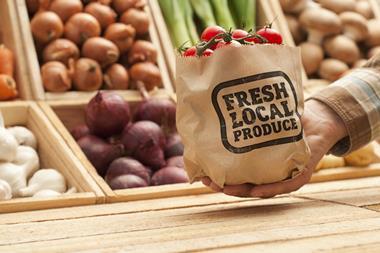
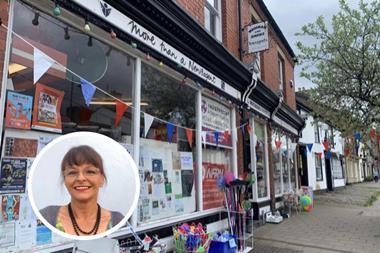
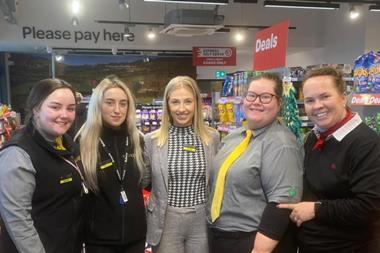
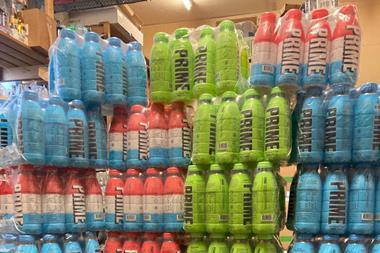

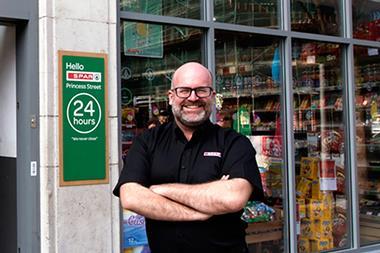

![C-Store_Champions_logo-CHOSEN[1] 2023](https://d2dyh47stel7w4.cloudfront.net/Pictures/380x253/6/5/7/301657_cstore_champions_logochosen12023_817064.jpg)
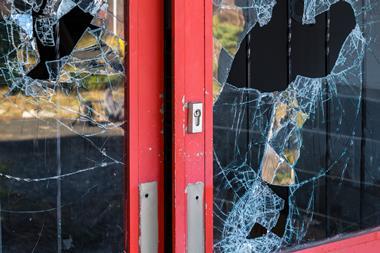



No comments yet